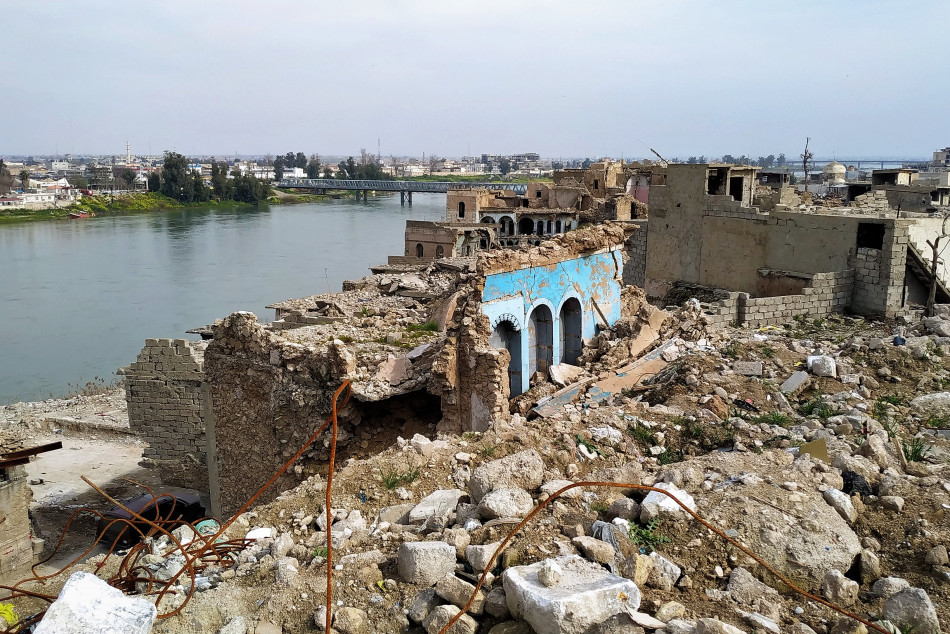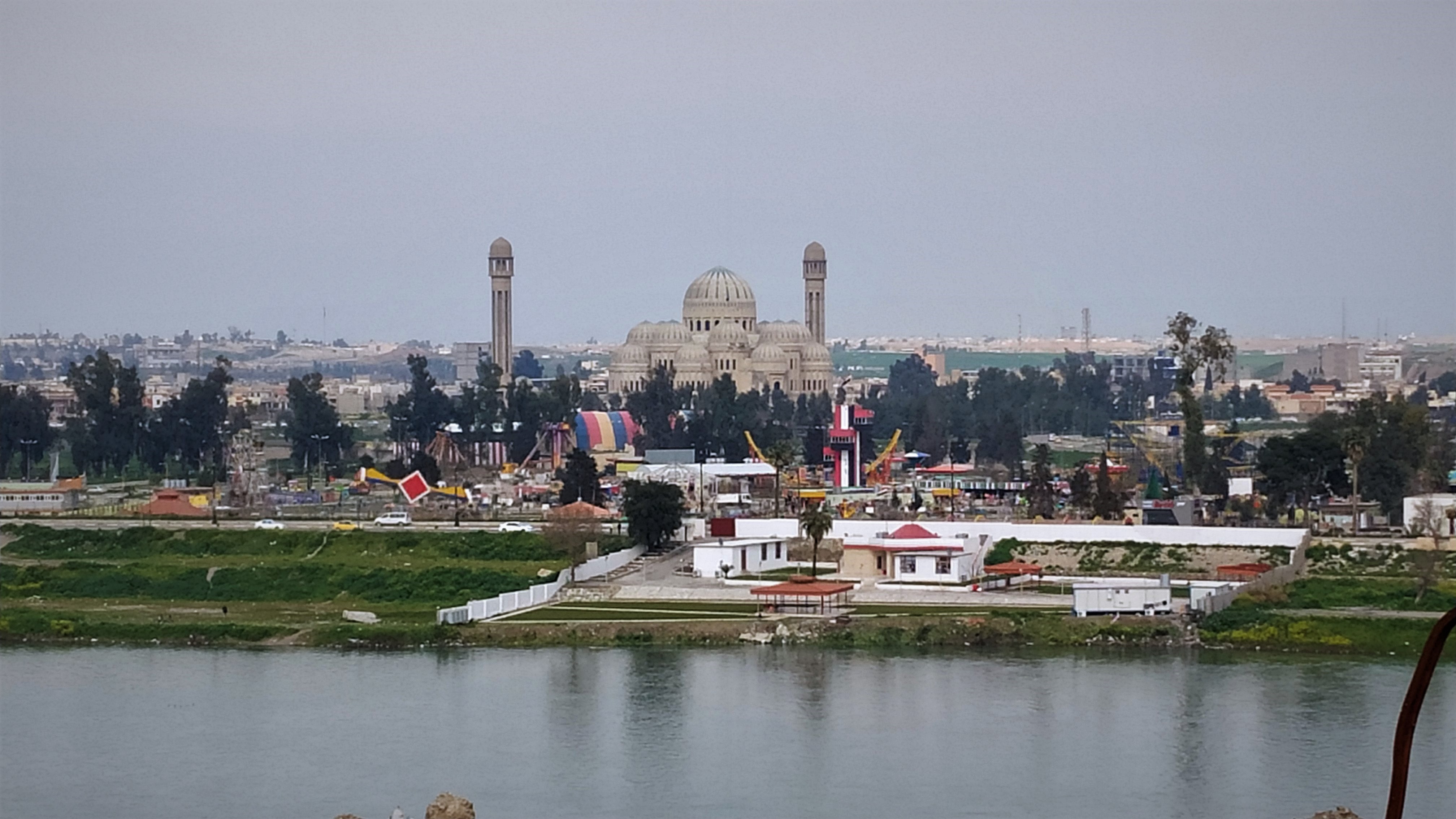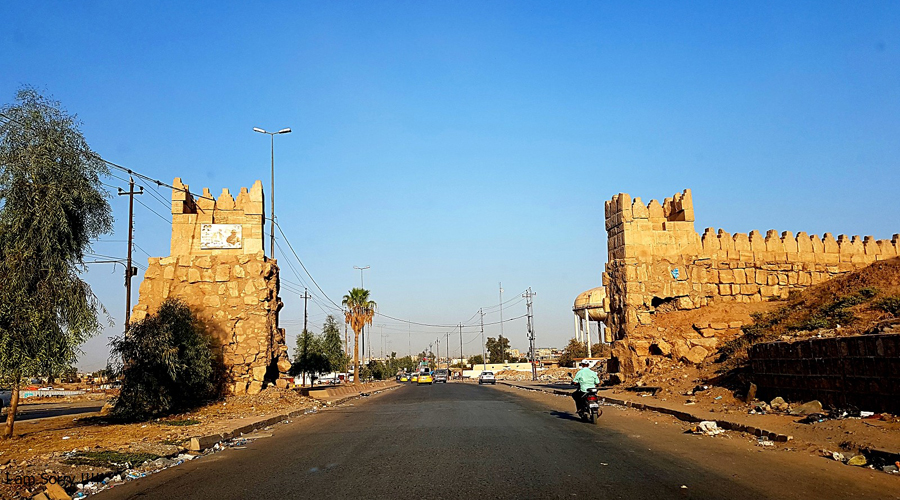Sufyan Al-Nuaimi, 34, wanted to spend a night in the old town of Mosul at his uncle’s yet he will never forget that night as he heard the noise of cars and people near one of the prisons where hundreds of Islamic State in Iraq and Levant ISIL members were detained.
At Midnight, it has become clear that ISIL took over Mosul. That prison has been breached as the guards have escaped, and it has become a hotbed for ISIL members.
Sufyan tried to return home under cover of darkness, but he couldn’t make it because the gunmen blocked roads and set up checkpoints and were shooting in all directions. Despite the opposition of his uncle, Sufyan insisted on leaving and returning to his family, and as soon as he made his way to his house, he fell into the hands of ISIL militants who threw him in the trunk of a car and was brought to an unknown destination.
The issue of the missing in Ninewa, Kirkuk, Diyala and Salahaddin is still an indication of the poor human rights situation in Iraq since unofficial reports and figures show around 8,000-10,000 were kidnapped or went missing following the emergence of ISIL in August 2014 up to the war against it in 2017.
8,000-10,000 were kidnapped or went missing
Despite the efforts of some parties, representatives, activists and leaders representing this segment to uncover the fate of these disappeared and missing, they have not resulted in any positive feedback since the security, governmental and armed authorities, with their different addresses, did not disclose their fate though Iraqi forces have ousted ISIL and restored power in Ninewa and the disputed territories.
The family of Sufyan tried to search for him in the records of the missing and the mass graves that were exhumed, including the notorious “Khasfa” pit where ISIS militants used to dump the bodies of their victims after their execution, but there was no trace.
The list of the missing and the disappeared includes persons who went missing for reasons that are still unknown and accusations that, according to the families of the missing persons, not mounted to terrorism or registered in the wanted records.
As for Sufyan family, after the Iraqi forces regained control of Mosul, they have approached the Martyrs Foundation and before that Human Rights Organization in Ninewa where they were told they had the names of the disappeared and the missing persons whose families to be financially compensated as soon as a budget is allocated.
Sami Faisal, Head of the Human Rights Commission in Ninewa, confirmed to KirkukNow as for Ninewa, many were arrested between 2014 to 2017. “Our statistics show the loss of 8,000-9,000, from all communities of Mosul, including 3,422 Ezidi (Yazidi) women and children."
"There are missing persons who escaped Daesh but later were arrested by unknown parties after they left Ninewa. We have data with these names and security records."
Khasfa and Alo Antar are two mass graves in Mosul for thousands of civilians slaughtered by ISIL militants. Al-Khasfa, called by locals “the death pit,” is located near al-Athba village, 20 km south of Mosul.
Alo Antar is located about six km from Tal Afar in an arid area in west Ninewa. According to the Iraqi High Commission for Human Rights, the mass grave in Alo Antar contains the remains of more than one thousand Turkmen and Ezidi victims of ISIL.
ISIL militants have targeted all the religious groups in particular the minorities, especially the Ezidis whom they accuse of being heretics.
The abuses inflicted by the extremist group included killings, torture, amputations, ethno-sectarian attacks, rape and sexual slavery of women and girls.
According to the United Nations, more than 200 mass graves containing the remains of up to 12,000 people have so far been discovered in Iraq, which concluded IS has committed acts that may amount to war crimes, crimes against humanity and genocide.
Out of 80 mass graves and tens of individual graves for the Ezidi victims, only 20 mass graves have been exhumed since March 2019 up to the present.

Ninewa 2019- The old area overlooking eastern part of Mosul on the banks of Tigris River. KirkukNow
Ahmed, one of the victims of ISIL we encountered on the way to the family of one of the disappeared, said that he was shot in the leg during the war to retake Mosul, specifically in March 2017 by a sniper of ISIL while he and his family were trying to flee Mosul.
"On July 4th 2017, after the liberation of the area, the security forces asked my family, my brother Muhammad and his son to get out to the streets and had no idea that Daesh planted IEDs. My brother and nephew, my aunt, cousin’s wife and son were injured by a roadside bomb and my niece was amputated,” he added.
Ahmed said one of his brothers is among the missing. He was told that his brother's body remained on the street for three days but later when the security forces raided the area, he was unable to find his brother's body where it was supposed to be.
The list of the disappeared and missing includes hundreds of Turkmens, according to one of the Turkmen survivors who said the number of missing people in Tal Afa, majority Shiite-Turkmen district of Ninewa, is estimated at about 1,300 people, and this is a confirmed number by their relatives who returned to town and all cases are registered by the (Iraqi) Commission for Human Rights
As for missing Sunni Arabs, a member of the Human Rights Commission in Iraq, Ali al-Bayati, told KirkukNow, "their number ranges between six thousand to eight thousand missing and disappeared."
Al-Bayati revealed that hundreds of people were found detained or imprisoned in official institutions on charges "related to terrorism and other charges."
"Although Iraq joined the International Convention on the Protection of All Persons from Enforced Disappearance, we do not have a law that frankly obliges the concerned authorities to carry out the tasks entrusted to them in this agreement, which includes protecting people from enforced disappearance."

In March 2017, the Human Rights Watch wrote that according to local witnesses, ISIL has killed 3,000 people and dumped their bodies in the Khasfa pit, which has a diameter of 30 meters.
In August 2018, the Iraqi High Judicial Committee said that eight members of a family have confessed to have helped ISIS to execute 370 people and dump their bodies in the sinkhole.
Al-Bayati stressed the need to "investigate any complaints related to enforced disappearance, hold authority officials accused of enforced disappearance to account, lift the immunity of any accused person, and the state to compensate the harmed and the victim's family.”
It is the duty of the coming parliament to legislate a law in this regard
"It is the duty of the coming parliament to legislate a law in this regard and to start preparing the national policy for implementing the law and restore justice to the victims."
"The Commission worked independently and as part of the national body formed by order 46 about the disappeared and missing within the liberated areas," he added.
Compensation for the families of the missing and the disappeared is one of the main parts of the missing issue. The Director of Ninewa Compensation, Muhammad Ogla, replied briefly, saying, “This is a thorny issue and there are many details to be explained.”
Legal experts recommend a high committee by the government to investigate the cases in order to issue death certificates and properly compensate their relatives.
Dr. Haider Al-Dhalimi, a legal expert, said, "There must be legal solutions to the problem of the missing and the disappeared” through the formation of a high governmental committee consisting of the Ministry of Justice, the Human Rights Commission, the Ministry of Interior and the Ministry of Migration and Displacement, to review the names of the missing for the purpose of monitoring fair compensation as well as documenting death in a lawful way.”
"The constitution obligates the state to protect the lives of individuals and to provide a safe environment for them. Thus, the state's responsibility is realized in the event that any person suffers damage as a result of military mistakes or as a result of terrorist operations," he elaborated.
Al-Dhalimi explained that the issue of the enforced disappearance of citizens overlaps with the file of those killed by ISIL militants, foreign and Iraqi militants, and “the matter is left without any real legal solution despite the existence of the legislative constitutional legal basis for that.”
Finding Sufyan was a glimpse of hope in the imagination of his family, especially his mother who died after a period of grief over his disappearance.





